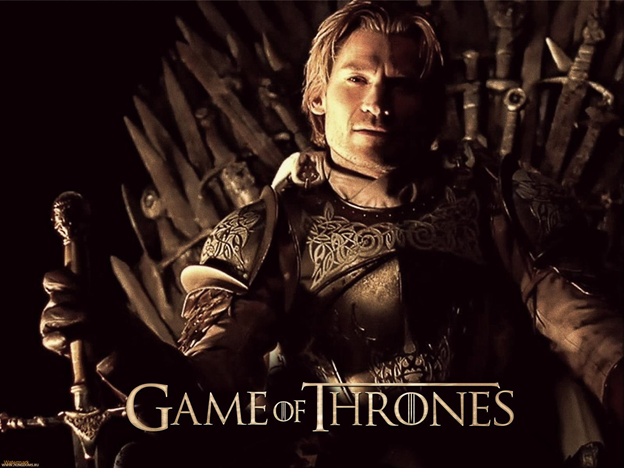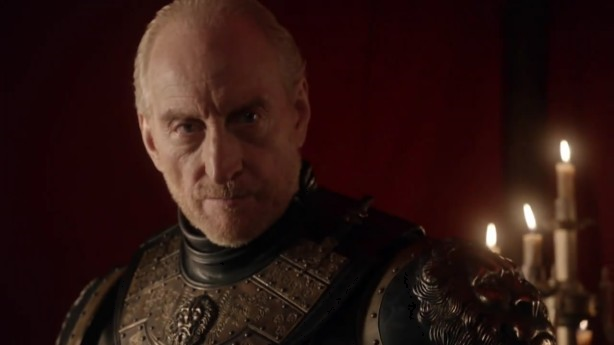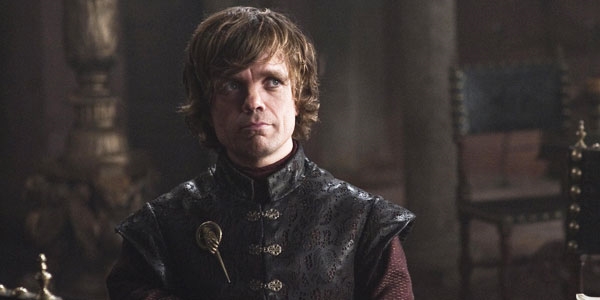The Lannister Brand
March 29, 2012 in Editorial, Top

Centives’ coverage of The Game of Thrones is spoiler-free for those who have watched the first season
“A Lannister always pays his debts” is a phrase that will be immediately familiar to those who have finished watching the first season of HBO’s popular series Game of Thrones. It is also a phrase that seems to be commonly known in all of Westoros.
It is a useful motto to have; Tyrion Lannister is able to use its widespread acceptance and recognition to get out of several sticky situations. The motto is then, at its heart, a form of branding. It is strongly linked to anybody who comes from house Lannister, and the brand-awareness is so deep that it can be used as a form of currency in itself. Tyrion is able to promise rewards in the future for actions taken by others in the present, and these promises of future payments are seen as credible.
For the brand to receive the kind of reputation that it has, constant repetition is necessary. Even one failed promise of debt repayment could be enough to put an end to the brand if word of the reneged promise were to spread. So while the brand is useful it also opens the famously rich Lannisters to risks. Any individual could, for example, try to extort money from the Lannisters by threatening to claim that the Lannisters didn’t pay them some promised payment. If the extorter would be seen by others as credible the Lannisters would have little choice but to pay the extorted amount – or risk losing their brand.
Perhaps this is why the Lannisters work very hard to make the rest of the brand appear as ferocious as possible. The house’s sigil and official words are other components of the brand and they both imply a ruthless aggression. Their sigil is a Golden Lion and their house words are “Hear Me Roar.” The Lannisters are sending a message to potential extorters that trying to challenge them is a dangerous game.
Another problem with maintenance of the band is that it applies to every single Lannister. Just one bad-egg who made untenable promises would be enough to ruin the brand entirely. Perhaps this is why Tywin Lannister, Tyrion’s father, keeps such an iron grip on his family. At one point Tyrion complains that he has to always do “what his father says.” In the context of brand management it makes sense that the father would want to maintain control over everybody. He’s afraid that if any one Lannister were to make unrealistic promises then the entire brand that might have taken centuries to develop would be destroyed. Thus he keeps a close eye on all Lanisters.

The Lannisters might also then want to have fewer children. Since the Lannisters as a clan have to repay the debts of any other Lannister it would seem that the best policy would be to not have too many Lannisters around. Perhaps this is why Tywin did not remarry and chose to have only three children. Compare this to Ned Stark who has three other siblings*, and has six legitimate children of his own. Family planning and birth control are integral to the maintenance of the brand.
Tywin is also extremely alarmed at the idea of Jaime as a captive of the Starks. At first glance this might be an expression of the affection that a father has for his son. However it could also be viewed as a fear for the brand. What if, for example, an exhausted and tired Jaime promised that the Lannisters would support the Starks in their quest for independence for the Northern Kingdoms, in return for Jaime’s own freedom? If Jaime were to make such a promise then the Lannisters would have to choose between maintaining their brand and taking the throne. It is thus imperative to Tywin that his son, Jaime, is released as soon as possible. Jaime might soon become fatigued and start making deals with the Starks, that the Lannisters would be forced to uphold.

One thing doesn’t add up though. When Tyrion makes promises of gold to individuals, and reminds them that a “Lannister always pays his debts” he is non-specific about the amounts that he is promising. He tells Maud that he’s prepared to give him “lots of gold” and at other points he’s seen promising individuals that he’ll make them richer than they could ever imagine. This seems like a dangerous strategy. What if somebody is unsatisfied with the amount of gold they received even after substantial payments are made to them? Perhaps the Lannisters are relying on ridicule from the masses from individuals who claim to be unsatisfied with the riches that they receive from them. But why run that risk? It seems that it would make more sense to offer specific amounts and protect the brand from any disrepute.
*The article erroneously stated that Ned had five siblings. Thanks to Andrew for pointing out the error.
Enjoyed this article? Read the rest of our Game of Thrones coverage , or the cost of hiring a Space Marine. Or take a look at our other editorials and some of our Greatest Hits. You might also want to follow us on Twitter or Facebook to get the latest and greatest from Centives.
Interesting Article, as well as it shows even the difference between a brand and a family motto:
As the author points out, the necessarity to control the develpoment of the brand suggests to keep the number of family members limited. But in contrast to company members, family members could not be replaced easily, even in a middle-aged setting full of wars and diseases. Further on, family stuctures are more complicated and more than company memberships: some families which are not named Lannisters are also regarded als belonging to the clan, the Lennisters are keeping an eye on their wellfare.
So to say, taking care of the “corporate identity” is one of a set of competing instruments of dinastical politics, such as having enough family members in backhand, eleminating opponents, keeping men at arms, controlling commodity and cash flows…
By saying always, I think it is implied that the payment always covered the debt. So, lots of gold will be fair compensation(or better). The payee may not feel it’s enough, but the general population looking at the deal(or listening to the complaint) would feel it was fair. If someone challenged a Lannister, the payee would repeat the brand as though to say – that is what’s fair.
Although, I think there is more to ‘A Lannister always pays his debts’ than to just mean monetary loans.
It also meant, hit me and I’ll hit you back. If someone wronged a Lannister, they could expect trouble. Such as Jaime attacking Ned over the kidnapping of Tyrion.
Tyrion uses both of these interpretations, sometimes promising gold – other times, warning someone not to mess with him.
I think the brand would have grown fast as Jaime went around settling issues(debts) with their opponents.
The brand took just Tywin’s generation to develop. The Lannisters were a weak house before; it’s Tywin who developed it to what it is. There’s a conversation to that effect in the 2nd season, and also material from the books supporting it.
Ned Stark has only 3 other siblings; Brandon, Lyanna, and Benjen. He also only has 5 legitimate children; Robb, Sansa, Arya, Bran, and Rickson.
Aside from that, great article! T’was a good read!
We’ve fixed it now – thanks!